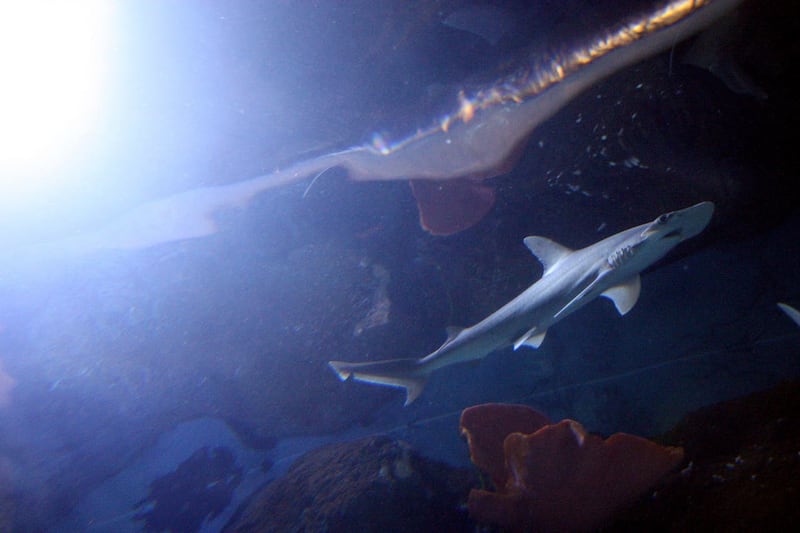We may know sharks as bloodthirsty predators but scientists have discovered one of the most common species is actually an omnivore.
A study by researchers in the US revealed that the bonnethead shark (Sphyrna tiburo) – found in coastal waters around the US and South America – eats plants as well as meat.
Scientists have known for a while that the bonnethead, a type of hammerhead known for the distinctive structure of their heads, consume seagrass, but it was assumed they were doing this while hunting for squid, crabs and other bony fish.
Previous analysis of their stomach contents showed that more than 60% of their diet was made of seagrass but scientists had not figured out whether they digested and absorbed the plant’s nutrients as food.
The team from the University of California in Irvine, and Florida International University in Miami, placed five sharks in a lab.
They planted seagrass collected from Florida Bay in the tanks and gave the plants an easily identifiable chemical signature by adding sodium bicarbonate powder made with a specific carbon isotope to the water.
The researchers then fed the bonnetheads a diet made up of 90% seagrass and 10% squid.
After three weeks, the sharks had put on weight.
The researchers ran a series of tests to see how much of the plant matter was digested.
Results showed high levels of the carbon isotope in the shark’s blood and liver tissue, indicating the nutrients from the seagrass had been absorbed by the sharks.

The researchers wrote in their paper: “We provide conclusive evidence that bonnethead sharks, animals previously thought to be solely carnivorous, can assimilate nutrients from seagrass.
“This is the first species of shark ever to be shown to have an omnivorous digestive strategy.”
The team said: “Remarkably, the bonnethead’s digestibility of organic matter is comparable to juvenile green sea turtles (Chelonia mydas).
“As green sea turtles mature, they become almost entirely herbivorous, and their digestibility of seagrass increases.”
The research is published in Proceedings of the Royal Society B.








